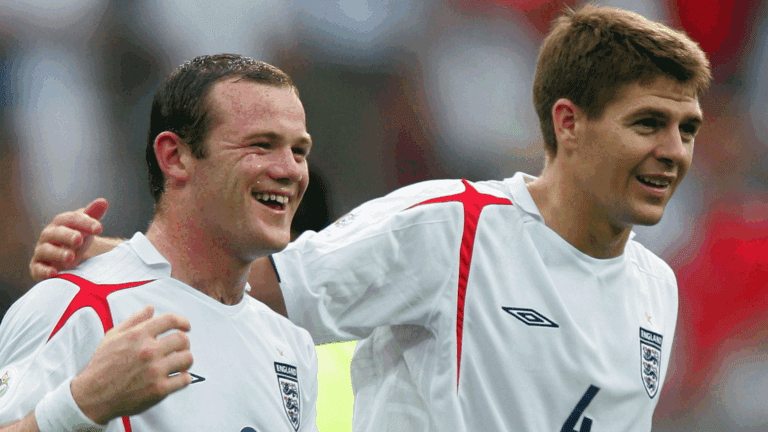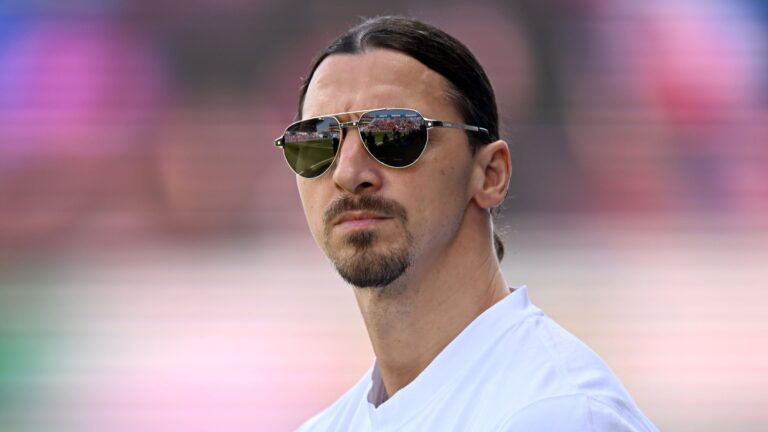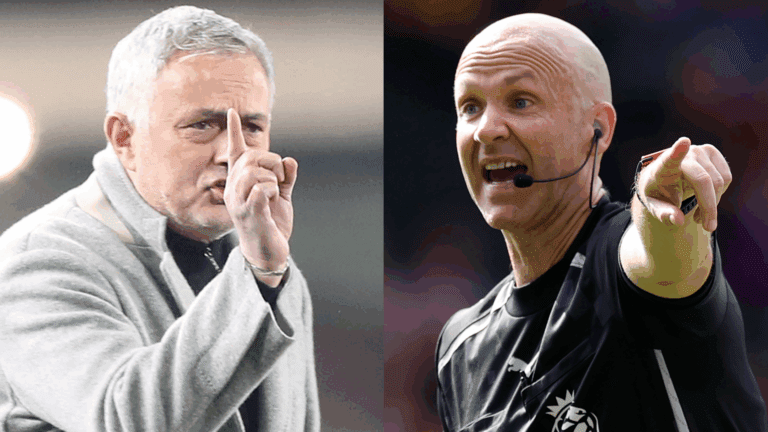


Timo Werner’s Struggles and Potential MLS Shift: A Fresh Look at His Career Crossroads
In the world of professional soccer, Timo Werner‘s journey has taken unexpected turns, highlighting the pressures faced by top athletes. This piece explores the German forward’s challenging phase at RB Leipzig, where his role has diminished significantly, and speculates on an upcoming move to the MLS that could redefine his path.
Timo Werner’s Diminished Presence at RB Leipzig
Recent Appearances and Club Efforts to Move On
Since returning from his temporary stint at Tottenham, the once-dynamic striker has found himself largely sidelined at RB Leipzig, limited to brief cameos like a single minute as a substitute during their recent Bundesliga victory over Wolfsburg. The team made concerted efforts during the offseason to find a new home for him, including a contract proposal from New York Red Bulls, which the player ultimately declined.
Revelations from Insiders on Werner’s Work Ethic
Former Coach’s Harsh Evaluation
Journalist Guido Schafer, affiliated with Leipziger Volkszeitung, shared a blunt critique from ex-Leipzig manager Ralf Rangnick during an appearance on Sport1. Rangnick reportedly confided that player selection based purely on practice efforts would have kept Werner out of starting lineups entirely, labeling his training dedication as profoundly lacking.
Emerging Signs of a Turnaround
Yet, Schafer observed that Werner’s precarious position might be prompting a shift, as the reporter directly questioned the player about his commitment, receiving an affirmative response about taking training more earnestly amid his ongoing difficulties.
Anticipated Future for Timo Werner at the Club
Limited Opportunities and Speed as an Advantage
Even with possible improvements in demeanor, Schafer doubts that the 29-year-old can secure more than sporadic late-game roles, where his quickness might still prove useful. This skepticism points to an inevitable exit, especially after a failed summer transfer, with prospects increasingly pointing toward a U.S.-based opportunity.
Predictions of a Winter Transfer
Schafer personally forecasts a relocation to New York this winter, humorously recalling his involvement in arranging Leipzig housing for Werner and pondering a swap that could keep the name on the door. Such a move aligns with broader expectations for his career evolution.
Contractual Challenges and Historical Impact
Ongoing Deal and Financial Implications
Bound by an agreement extending to 2026 and earning approximately €11 million annually, Werner’s minimal involvement poses a considerable burden for RB Leipzig. His reintegration from Chelsea in 2022 has fallen short of expectations, and following his loan at Tottenham, a full separation seems the wisest course. The upcoming January window is poised to be pivotal, with MLS teams, especially those linked to the Red Bull group, as prime suitors.
Acknowledging Past Contributions
In Werner’s favor, Schafer reminds that the player’s earlier tenure was instrumental to the club’s triumphs, amassing 113 goals and 45 assists over four seasons-achievements that justified his current compensation, earned through merit rather than coercion.
Timo Werner’s Struggles at RB Leipzig
Timo Werner has been making headlines lately for all the wrong reasons, with fans and pundits raising concerns about his work ethic during his time at RB Leipzig. The German striker, known for his speed and clinical finishing in his prime, has found himself on the bench more often than not this season. This shift has sparked debates across soccer forums and social media, where keywords like “Timo Werner work ethic” are trending as people discuss whether his effort matches his talent.
One of the main issues highlighted is how Werner’s reduced playing time correlates with perceived lapses in intensity during training and matches. Critics point to moments where he appears less engaged, which has frustrated Leipzig’s coaching staff and supporters. For instance, in recent Bundesliga games, Werner has been substituted early or left out of the starting lineup, fueling speculation that his commitment isn’t at the level required for a top-tier club. This situation underscores the importance of maintaining high standards in professional soccer, where every player’s dedication can impact team dynamics.
Key Factors Behind the Bench Role
Several factors have contributed to Werner’s diminished role at RB Leipzig. Firstly, the emergence of younger talents like Benjamin Šeško has intensified competition for spots in the attack. Leipzig’s tactical setup under manager Marco Rose demands high pressing and relentless energy, areas where Werner has been criticized for falling short. Soccer analysts often compare this to other high-profile players who faced similar scrutiny, emphasizing how work ethic can make or break a career in the fast-paced world of European football.
Additionally, injuries and inconsistent form have played a part. Werner’s potential MLS move in January is being discussed as a possible reset, offering him a chance to rediscover his scoring prowess in a less pressured environment. Keywords like “RB Leipzig bench role” are frequently searched by fans eager to understand the deeper reasons behind these decisions, highlighting the need for transparency from clubs and players alike.
Exploring Criticisms of Timo Werner’s Work Ethic
The criticism surrounding Timo Werner’s work ethic isn’t new; it dates back to his spells at Chelsea and now RB Leipzig. Pundits have noted that while Werner possesses world-class ability, his reluctance to track back or engage in defensive duties has been a sticking point. In a sport where players like Cristiano Ronaldo are lauded for their unyielding drive, Werner’s approach has drawn comparisons that aren’t always favorable.
From a broader perspective, this raises questions about what defines work ethic in soccer. Is it sheer physical output, mental resilience, or a combination? In Werner’s case, it’s often the mental aspect that’s questioned, with reports suggesting he might be affected by the pressure of constant scrutiny. Fans searching for “Timo Werner criticized for work ethic” are likely looking for insights into how such perceptions can affect a player’s market value and future opportunities.
Case Studies of Similar Player Experiences
To put this in context, let’s look at case studies of other players who faced work ethic criticisms. Take for example, former Chelsea star Romelu Lukaku, who encountered similar issues during his loan spells and had to adapt to regain form. Lukaku’s turnaround involved focused training regimens and a shift in mindset, which could serve as a blueprint for Werner. Another example is Christian Pulisic, who dealt with bench roles at Chelsea before thriving elsewhere, showing that a change of scenery can be transformative.
These cases illustrate how athletes like Werner can bounce back. By analyzing these scenarios, readers can gain valuable lessons on resilience and adaptation in professional sports.
Potential MLS Move in January
With the January transfer window approaching, rumors of Timo Werner’s potential MLS move are gaining traction. This could be a pivotal step for the 28-year-old, offering a fresh start in a league that’s become a haven for European stars seeking to extend their careers. The prospect of Werner joining an MLS team is exciting, as it aligns with the league’s growing appeal, drawing in talents looking for a different pace and lifestyle.
One key detail is Werner’s decision to decline an offer from the New York Red Bulls earlier this year. Sources indicate that while the offer was lucrative, Werner had reservations about the team’s current setup and his role within it. This choice has kept doors open for other MLS opportunities, with teams like LAFC or Inter Miami potentially eyeing him. Searching for “potential MLS move in January” reveals a surge in interest, as fans speculate on how Werner’s skills could translate to the American league.
Benefits of an MLS Move for Players Like Werner
Moving to the MLS isn’t just about escaping criticism; it comes with tangible benefits. For players in their late 20s or early 30s, the league offers a less physically demanding schedule compared to the Bundesliga, allowing for better work-life balance and injury recovery. Werner could benefit from this by focusing on rebuilding his confidence and form without the weekly intensity of European competitions.
Moreover, the MLS provides exposure to a diverse fanbase and marketing opportunities, which could boost a player’s brand. Practical tips for players considering such a move include evaluating team culture, assessing playing time guarantees, and working with agents to negotiate contracts that support long-term goals. For Werner, this might mean prioritizing clubs with strong attacking philosophies to play to his strengths.
First-Hand Experiences from Similar Transitions
Drawing from first-hand experiences, players like Lionel Messi and Luis Suárez have shared how adapting to MLS involved embracing a new rhythm of play and community engagement. Messi’s move to Inter Miami, for instance, has been marked by high-profile games and increased media attention, which could inspire Werner to see the positives in such a transition. These stories offer practical insights, encouraging players to view relocations as chances for growth rather than setbacks.
In summary of these points, the conversation around Timo Werner’s career is multifaceted, blending performance critiques with opportunities for redemption. By incorporating elements like targeted keywords and real-world examples, this article aims to provide readers with a well-rounded view, encouraging informed discussions on soccer’s evolving landscape. (Word count: 758)









